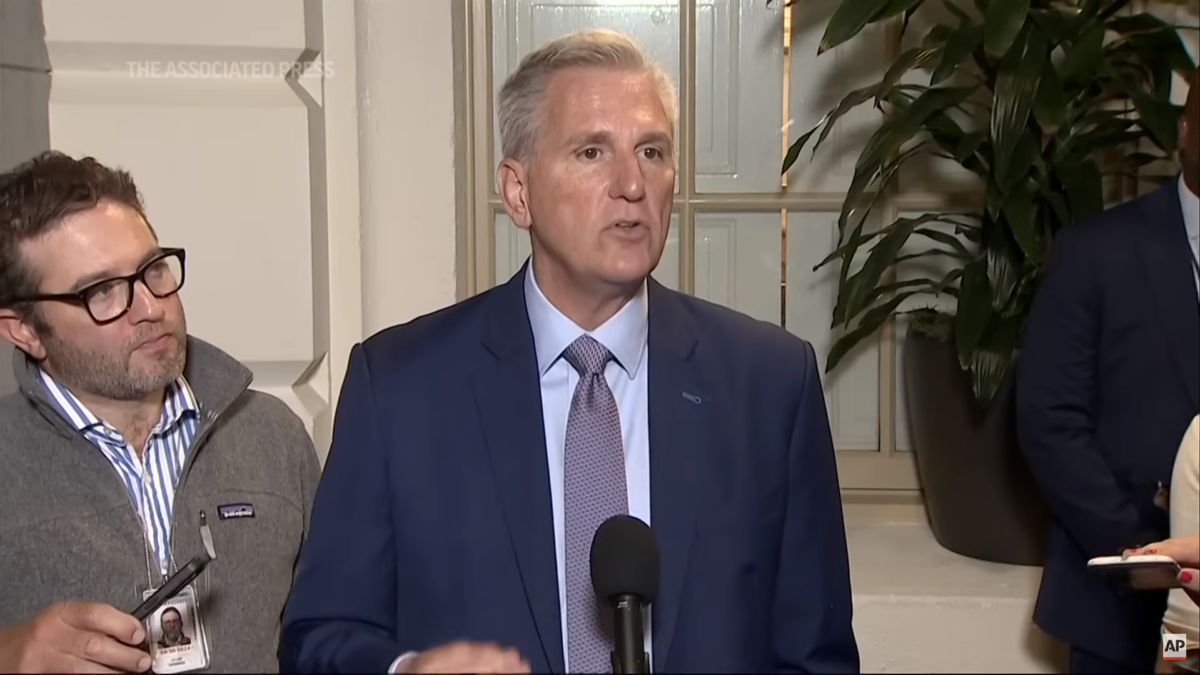
Did you hear the joke that circulated around the Capitol over the holidays? It’s called Congress’ ability to control government spending.
Shortly before departing for their Christmas break, lawmakers of both parties voted to waive provisions of existing law that would have led to spending reductions over the coming decade. The move represented but the latest instance of the bipartisan addiction to federal spending that plagues our nation’s capital.
In technical terms, Section 5002 of the temporary spending measure Congress passed on December 21 exempted the tax cut bill from the Statutory Pay-as-You-Go (PAYGO) Act. That law, enacted by a Democratic Congress in 2010, requires that tax cuts or spending increases be paid for by offsetting spending cuts, beginning in the following year after the deficit-increasing bill and continuing for up to ten years thereafter.
Because the final tax bill increased the deficit by nearly $1.5 trillion on a static basis—that is, not taking into account the economic growth that tax relief will produce—the PAYGO law would have required commensurate automatic reductions in spending in the coming years had Congress not enacted a waiver. However, as I noted last month, while a $1.5 trillion reduction in spending sounds large, it would represent less than 3 percent of all federal spending over the next decade.
Empty Democratic Threats
Prior to passage of the tax bill, Democrats threatened that statutory PAYGO would result in spending reductions to government programs. In August, the liberal Center for American Progress published a list of all the programs potentially subject to sequester spending reductions. In November, House Minority Whip Steny Hoyer (D-MD) used a Congressional Budget Office analysis he requested to decry “the complete elimination of all funding to dozens of mandatory programs next year” if Congress enacted a deficit-increasing tax bill.
Hoyer added that “while it is possible to avoid the PAYGO enforcement cuts triggered by their added deficits, Republicans would need Democratic votes to do it, requiring them to abandon their go-it-alone partisan strategy.” On that count, Hoyer needn’t have worried. On the spending bill that waived the PAYGO spending reductions, 14 Democrats voted for the measure in the House, and 18 Democrats voted for the bill in the Senate.
Granted, the bill that waived PAYGO included other spending provisions that Democrats may have wished to support. And some Republicans may have wanted to keep the spending reductions in place, but voted for the measure to keep the federal government open and operating.
However, Senate Democrats could have insisted on the removal of the PAYGO waiver as their price to allow the spending bill to overcome a Senate filibuster. They did not do so. In fact, every Senate Democrat voted to “waive all applicable budgetary discipline” for the spending bill. That motion passed the Senate on a 91-8 vote, with Republicans providing all eight of the nays.
The PAYGO Law Is a Joke
For all their willingness to talk a big game before Republicans passed their tax measure, Democrats folded like a cheap suit on applying statutory PAYGO spending reductions to the tax bill. Earlier in December, their threats rattled moderate Republicans like Sen. Susan Collins (R-ME), who before voting for the tax measure forced Republican leaders to pledge that the spending reductions would never go into effect.
But Republican leaders could only make such a pledge—which, as Hoyer rightly noted in November, required Democratic votes—because they knew Democrats would never follow through on their empty threats to let the spending reductions occur. Liberals love government spending, and their saber-rattling over statutory PAYGO amounted to empty rhetoric towards Republicans: “Don’t pass a tax cut, or we’ll shoot ourselves in the foot by cutting programs we like!”
Ultimately, the statutory PAYGO debate demonstrated that neither party has the discipline or willpower necessary to constrain government spending. Speaker of the House Paul Ryan (R-WI) and Senate Majority Leader Mitch McConnell (R-KY) received next to no pushback from their own members for committing Congress to undo spending cuts.
Only eight of 51 Senate Republicans voted against waiving budgetary discipline for the spending bill, and only two of those, Kentucky’s Rand Paul and Utah’s Mike Lee, voted against the bill’s final passage. Likewise, only 16 Republicans voted against the spending bill in the House, and several of those voted no not because the bill cancelled automatic spending reductions, but because the bill didn’t spend enough on federal defense programs.
The press critics who claim the death of bipartisanship should have watched the debate on waiving PAYGO. Both they and federal taxpayers would benefit from more closely examining the bipartisanship on display in waiving any semblance of fiscal discipline.
Mr. Jacobs is founder and CEO of Juniper Research Group, a policy consulting firm based in Washington. He is on Twitter: @chrisjacobsHC.









